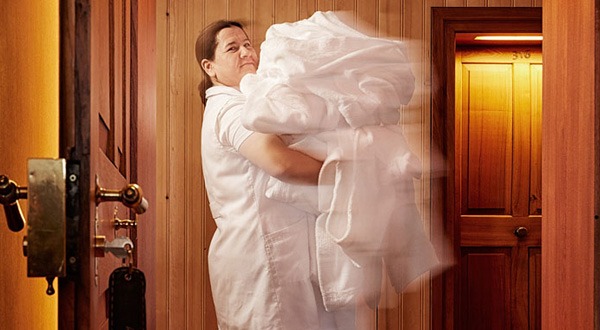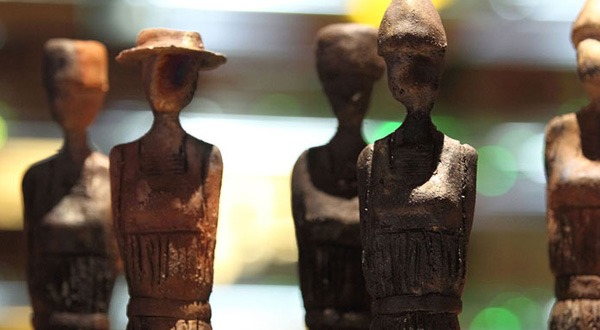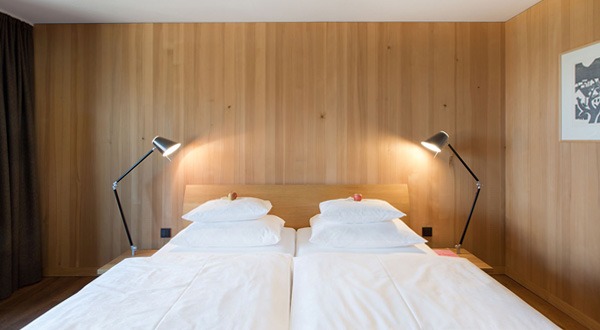Our worst kept secret: nothing works in isolation. Good, reliable and attentive suppliers are invaluable partners in hospitality. Some of our regular guests love trout from Lake Constance and we’ll let our fisherman know in good time. Or, our vegetable grower tells us that certain produce will be harvested next week. Time for the Krone kitchen team to sit down and plan accordingly. We’re in tune with our suppliers and they reciprocate. Without them, our Krone kitchen would lack many crucial ingredients: brown trout; ancient potato varieties, organic chicken, forest honey, wild herbs, black trumpet and porcini mushrooms, apples and pears straight from the tree, beef tomatoes and Egyptian walking onions (and no, they don’t walk!).
Let’s introduce a few of our trusted suppliers, longterm partners in crime and friends:
Anton Mohr, Andelsbuch
My joinery team was involved in the extensive renovation work at the Krone. Dietmar and Helene Nussbaumer took great care to employ local workers from different trades, supporting the region and maintaining the authenticity of Bregenzerwald building traditions.
I commend them for their approach and hope it serves as an example to others.
Anton Mohr, joiner and cabinet maker
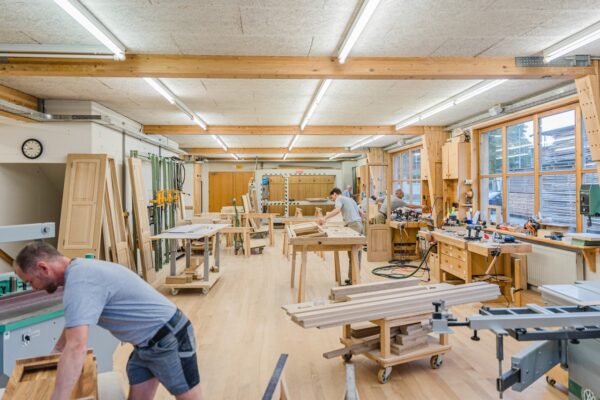
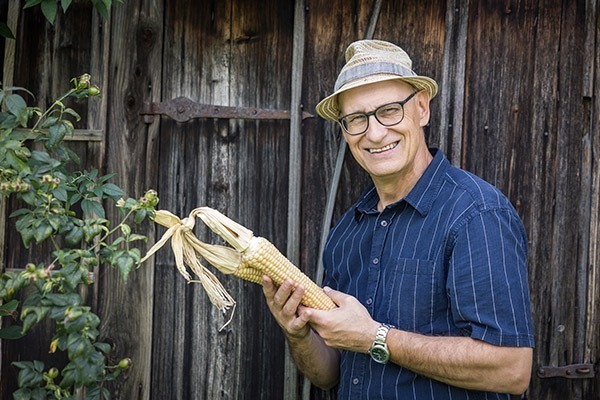
Richard Dietrich, Lauterach
It all started with collecting seeds from a dwindling number of small producers in the area. Every year since then, we’ve propagated these often rare and valuable seeds by hand. One of the results is the resurrection of an old traditionell white maize variety which has once again found its way into many kitchens.
Innovative culinary excellence in Vorarlberg. I consider myself a food artisan with strong connections to the region’s agriculture. There is great satisfaction in bringing back near extinct foods such as white maize or pears from mature, tall-stem fruit trees and witness their transformation into delightful dishes or sumptuous spirits.
Nino Mayer, Frastanz
At 700 metres above sea level, Nino Mayer breeds sea char and salmon trout. They thrive in cool, calm waters, their ponds surrounded by pristine nature, forest, meadows and bubbling springs. The fish are happy here, undisturbed, enjoying perfect growing conditions before providing us with one of the high quality fish specialties of the region.
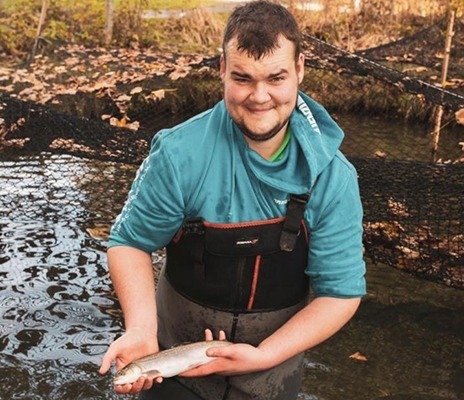
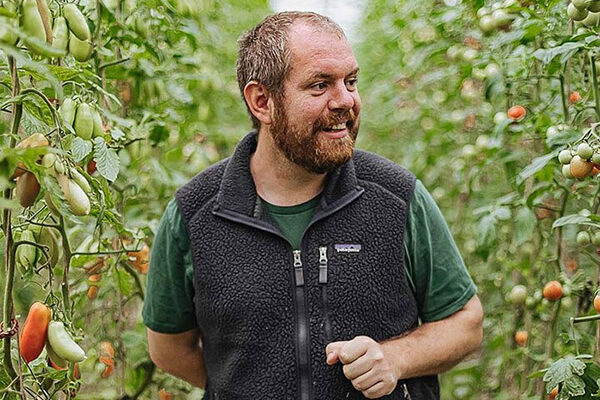
Vetterhof, Lustenau
The Vetterhof has been cultivating the fertile lands in Lustenau for over 300 years. Throughout the seasons, they grow a vast variety of crops, from eggplant to pak choi and parsnip to yellow submarine and zucchini, offering almost all vegetables native to Central Europe and beyond. The fertility of the soil is enhanced by traditional composting and a versatile crop rotation as well as catch crops and green manure plants. All organic, of course.
Karl Heinz Karu, Sulzberg
Chicken paradise. Karl Heinz Karu has been rearing his happy hens in nearby Sulzberg for over 20 years. His birds are free to roam in airy barns, enjoy their dust baths and Karl‘s own brand,
the ‚Wälder Hennele‘, guarantees top quality and great tasting chicken. For us it means we are never far away from the freshest possible chicken meat which, as an additional quality assurance, is examined daily by the local veterinarian.
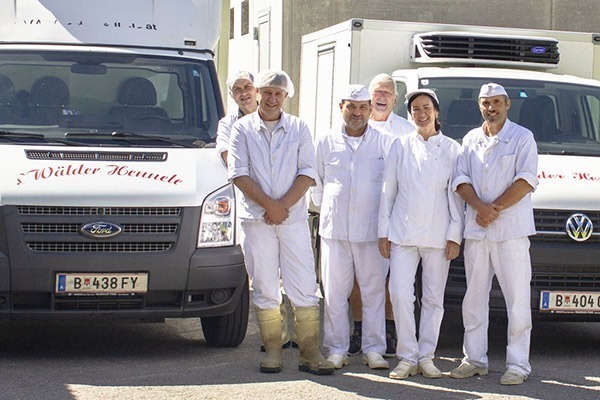
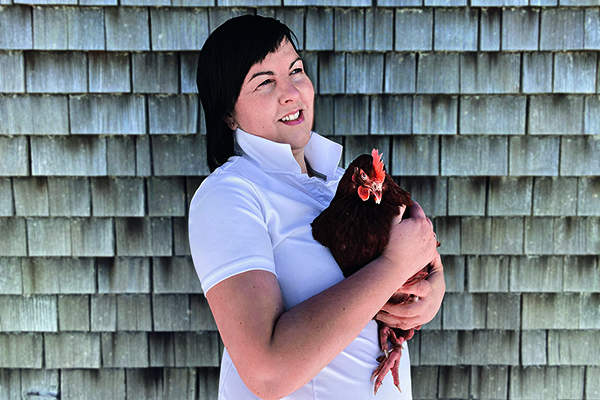
Family Berkmann, Hittisau
Chicken paradise number two, as described by the owner: The welfare of our chickens is our top priority. We make sure they have plenty of space to roam, access to sunny as well as shady areas and cosy hutches to bed down at night. During the summer months, they are our feathered companions on our alpine pasture in the Lecknertal, with access to all areas, including the banks of the lake nearby.
Cheese store Vögel, Schwarzenberg – Cheese, glorious cheese
We are very happy to deliver our selected cheese to the Hotel Krone. Their excellent chefs transform them into the most exquisite dishes. Our cheese is in good hands!
Thank you for the many years of co-operation!
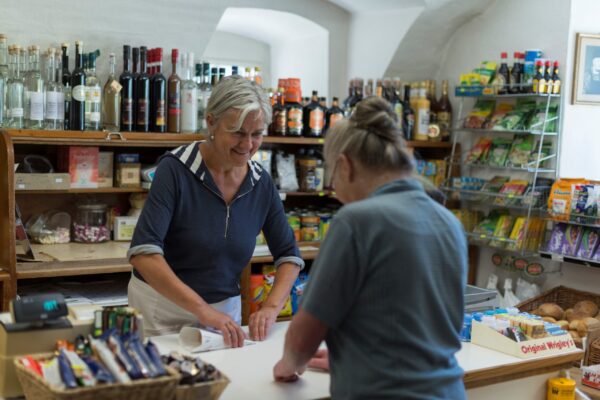
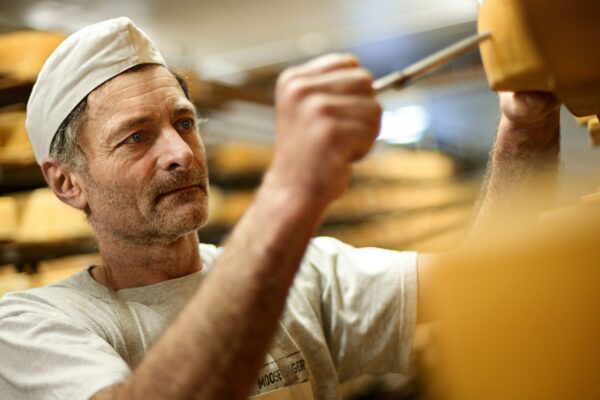
Hilkater cheese, Bizau – more cheese please
Our farm sits on a hill above Bizau in the Bregenzerwald. Our 17 cows are exclusively grass-fed and we process their milk into eleven different types of semi-hard and hard cheese on a daily basis. The wellbeing of our cows, hand-reared on the farm, is paramount for us. To succeed with our labour-intensive efforts, we depend on reliable buyers such as the Hotel Krone who value and appreciate our products.
Sheep milk Gmeiner, Bizau – Sheep, lovely sheep
It all started with an idea and just three sheep which by now have grown into a flock of 60 pasture-fed woolly bundles of joy. We put great emphasis on keeping our footprint as small as possible, selling predominantly to local buyers. Brigitte takes care of the marketing and packaging as well as twice weekly delivery of our selection of sheep milk products.
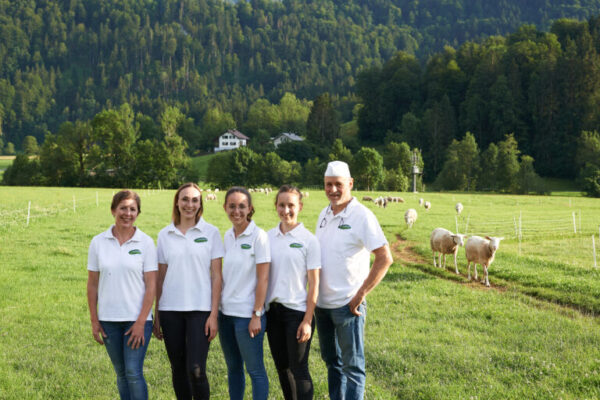
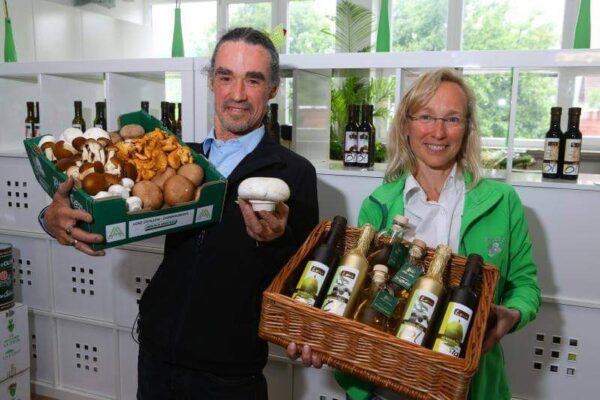
Mushroom Lenz, Wolfurt
It all started in 1968 in the tunnel for growing mushrooms. Ernst Lenz grew the finest mushrooms for the Vorarlberg gastronomy and his wife brought the mushrooms to the people.
The two children, Bettina and Alfred Lenz, built on this successful tradition, used the infrastructure created by father Lenz with contacts and customers in Vorarlberg and expanded the range and customer regions.
In particular, the current owner, Bettina Lenz, who studied business administration and knows a lot about Italy, created something new in a visionary, courageous and creative way. For example, she created a vinegar-oil line of fine vinegars and oils, pasta consisting of ancient grain in a special production process, so that e.g. gluten intolerance can also be avoided, and much more.


